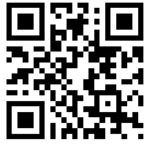Lithium batteries use metallic lithium as an anode. These type of batteries are also popularly known as the lithium metal cells. Lithium batteries are commonly used in electronic gadgets, electric vehicles, and remote controlled toys. Since it is used widely, it will be better to know the lithium-ion battery charging best practices.
What are the best charging practices for a lithium-ion battery? There are many ways to keep and prolong the life of lithium-ion batteries. One of the best practices known to extend its battery life is to store it on room temperature. We all know that extreme weather condition affects battery life, and this includes the lithium-ion battery.
Lithium-ion batteries are often neglected because of its small size. However, we should never underestimate the power of a lithium-ion battery. It can provide power for an electronically controlled vehicle like golf carts.
Therefore, it is equally important to care for your lithium-ion batteries the same way you care for a regular car battery. Lithium or not, the care and maintenance must be the same.
Knowing these simple tips for properly charging your lithium-ion batteries will take a long way. You will be able to prolong the usage of these battery type.
1. Trickle Charge
A Li-ion battery reaches full charge when the current drops to a set level. If you are using a trickle charge, most chargers uses topping when the level of current drops. The complete charging time will take about 2 to 3 hours.
Battery manufacturers usually recommend charging it at .08 C or even less to extend the life of the battery. Some Li-ion cells may reach a reading temperature of about 5 degrees C when it becomes fully charged. It is because of the protection circuit. If the battery temperature rises more than 10 degrees C, you must stop charging the battery.
2. Full Charge
Li-ion battery reaches full charge when it reaches the voltage threshold when the current reading registers at 3% of the current rate. You may also consider it as a full charge when the current levels are off and cannot go down any further.
3. Partial and not full charge is required
Unlike lead-acid batteries where it needs a 100% complete charging, a Li-ion battery does not need it. It is not advisable to fully charge this type of cell.
The high voltage or high flow of current causes too much stress on the batteries. Choosing a low voltage rate is highly recommended for a Li-ion battery.
It is not advisable for this kind of battery to reach stage 2 or the saturation stage. The state of charge (SOC) for step 1 reaches only 85% charge and it is the most recommended level for Li-ion charging.
4. No overcharging for Li-ion batteries
Do not attempt to overcharge a lithium-ion battery. Once it reaches full charge, you must cut it off immediately. Doing these may cause a metallic lithium plating. It may compromise safety when you fail to cut off the charging process.
When you turn-off the charger, it automatically drops the voltage and reduces the stress on the battery. To sum up, the charging process for Li-ion cells. Take time to read these simple guidelines or rules in charging a Li-ion battery.
Simple Rules for Charging Li-ion Batteries
These simple guidelines are a summary of what we have discussed in details. This steps will remind you of the right way of charging your Li-ion battery for a longer lifespan.
● Always disconnect the charger after getting 85% of charge. Parasitic charging can damage the cell.
● Choose the right room temperature when charging. Avoid too hot or too cold temperature.
● Observe partial charging only.
● Stop charging when the battery gets hot.
● Charge the battery before storing it.
To answer this question directly, it is not advisable to leave your Li-ion battery charging overnight. As I have mentioned, Li-ion only needs partial load. You were overcharging it when you leave it on the charger overnight. It may damage your batteries if you always overcharge it.

